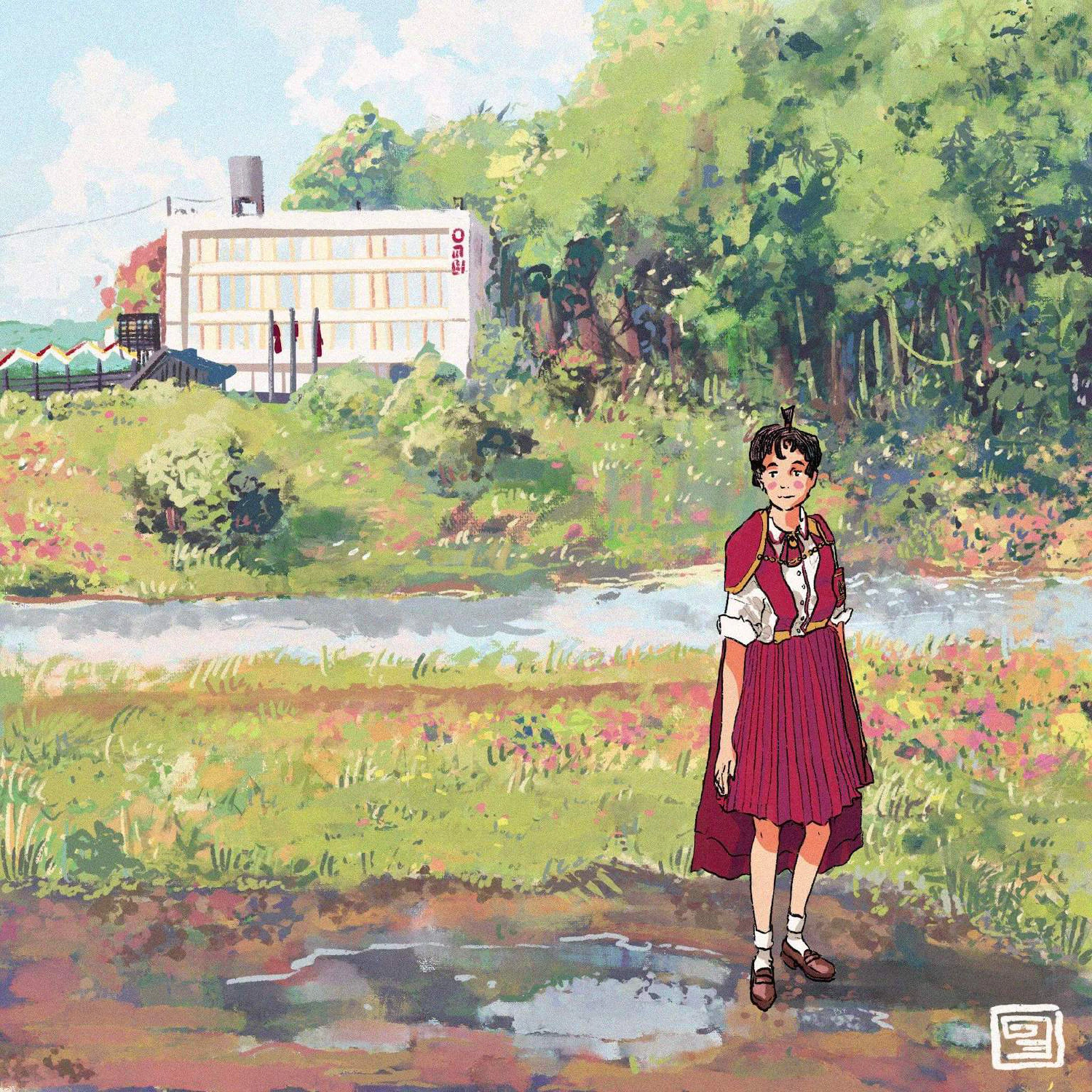NEW Story: Sunday Morning
The Girl and the Sublime

This article is not part of Vekllei canon. It may be old, obsolete or just a bit of fun.
When Tzipora moved to study English and Vekllei literature at the university of Montre in 2075, she had to walk from the little home where she lived to Montre-Lola’s old concrete platform, which facilitated a single electric railcar each way, each day. If she was feeling lively, she could make it to the platform in a half hour. On the days where she dreaded sighting her plimsolls in the shoebox, it might take forty-five minutes. She made this trip six days a week for five years, because that was the price of acquiring two degrees at once.
At first, the walk had been a welcome canvas of boredom. If the weather was good, it could even invoke the sublime. A row of gnarled old pines, planted by dead men, formed rank beside the dirt road. In the spring, the flower-tundras flashed colour through the waving pine needles as the breeze rolled through, which cooled her dreadful perspiration. She felt a very strong kinship with the Earth then, and she steadied the pace of her breaths, and she tasted sweet pine and warm soil in the air. She looked doll-like in her cape and dark leather shoes against the bright sunlight. After a long winter, her skin was not gently porcelain, but instead a waxen and tallowed complexion coloured only by the vigour of the honest walk and the spirit of the good earth around her.
Every day, she passed the same gnarled pines, and the same buried fallout shelter by Silverwater Creek, and the same abandoned machine shed that slumped closer to the fenceline with each passing season. It collapsed one day in March, baring its rusted mechanical organs briefly before it was buried in winter snow. She would look at the old tractor and wonder what part it had played in the lives of the stewards of these old fields. She thought about the factory where it might have been made and was struck with sadness.
After five years of walking in this timeless landscape, she no longer resented its obtrusion on her journey to school. She had memorised everything there was to memorise along her path. She recognised lichen on the old stair rail like moles on the face of a friend, and could recite the make and count of the wine bottles in the bed of the creek. It occurred to her, in some small way, that it was only after the beauty of the path had evaporated that she was able to truly visit it. It was the eternal conflict of landscape, she supposed; it was only now, in her utter boredom and total blindness to landscape, that she had finally removed herself from the vista and allowed herself to see place as it was for the first time.
She had intuitively discovered for herself a central tenant of Upen, where the sublime had been usurped by the much quieter, and much richer, mundane. The sublime screams like colour through pine leaves; the mundane is the dew that gathers silently on the spokes of the tractor ruin. The sublime is in the perfume of country air; the mundane is in the carcass of a beetle nestled in the moss; the sublime is the self-conscious rouge on her lips; the mundane a dirty scuff on her sock ankle; the sublime the whisper of the wind, betrayed by a new bud beneath a branch; the prism of her light blue eyes by the moistness around her nostrils in the cool weather.
No, it was never a matter of birth and decay, or light and dark; it was never about a schism to begin with. It was a fundamental kinship with a transcendental memory of place, and the hidden spirituality of the unimportant, and the sweetness of the unbeautiful.
The unconscious recognition became conscious knowledge, and it obliterated her world. The entire axis of cosmology tripped. The world pivoted. Beauty and pleasure were rediscovered in an instant. She looked around her, and she had discovered the mundane. She was no longer standing amidst landscape, but mere place.
Her heart swelled with pleasure. Her blood sounded in her ears. Through five years of emotional labour and millions of footfalls, she had discovered the mundane in the sublime, if only here. Her eyes and heart had a sudden clarity; she was filled with love not just for the smallest of things, but in fact the smallest things exclusively.
Although the feeling she had in that moment was by its nature irreproducible, she would do her best to recognise the mundane everywhere. She sincerely fell in love with Newda shortly after. The small and honest voice of the simple and inconsequential and imperfect called to her wherever she went, and from then on she was always at peace in place; for she was always surrounded by patina, and change, and the most delicate hinge of life that animated the inanimate in her renewed understanding of the world.
